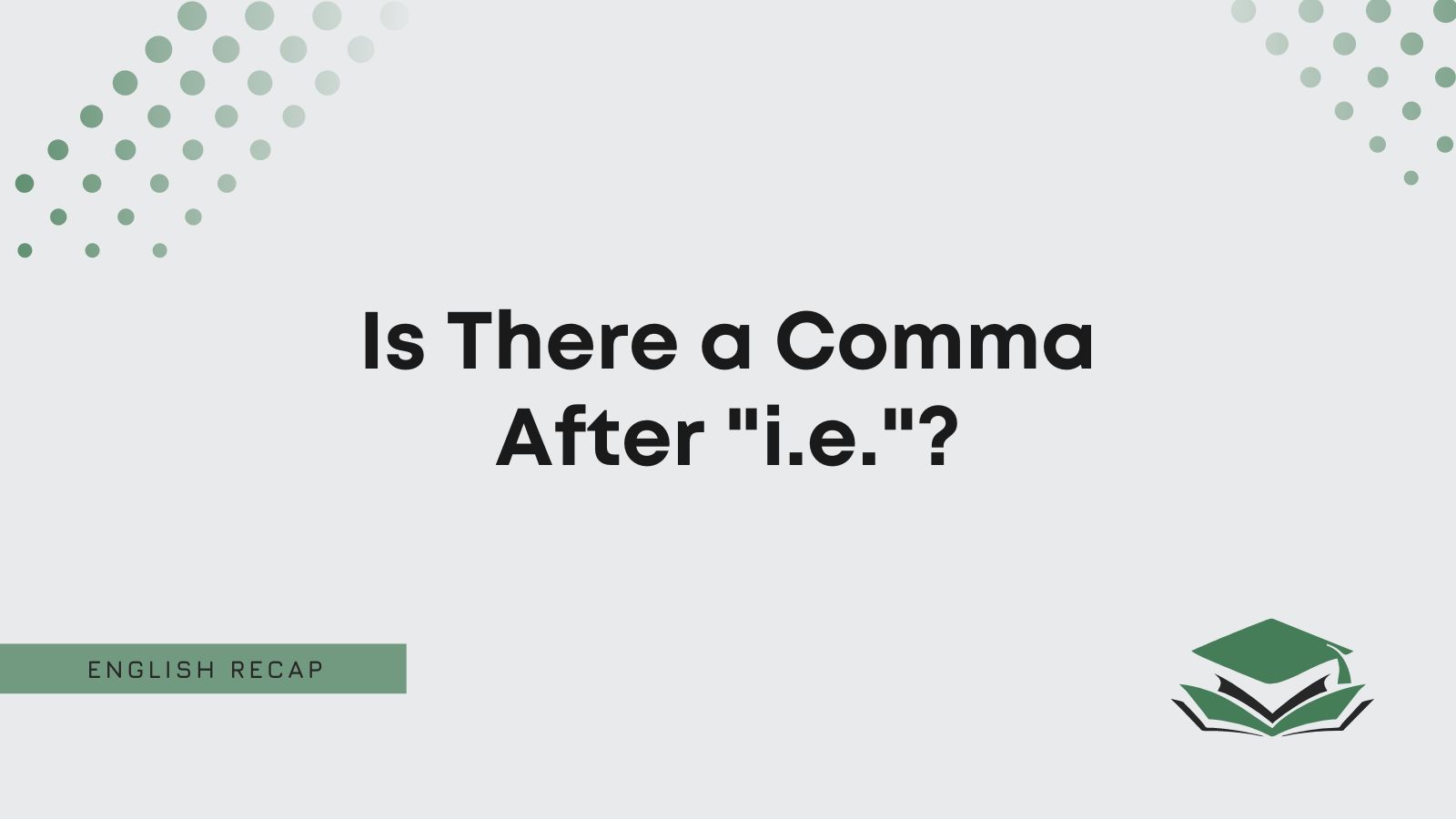Rule 1: Use a comma after “i.e.” when you are writing in American English.
- Correct: They didn’t know what to do. I.e., they hadn’t read the instructions.
- Incorrect: They didn’t know what to do. I.e. they hadn’t read the instructions.
Rule 2: Do not use a comma after “i.e.” when you write in British English.
- Correct: They sell smartphone components, i.e. the pieces you use to repair smartphones.
- Incorrect: They sell smartphone components, i.e., the pieces you use to repair smartphones.
Please keep reading the rest of the page to learn more about how you can use commas with “i.e.”
When to Use a Comma After “i.e.”
When you need to know when to use a comma after “i.e.,” you should check Rule 1.
Rule 1: Use a comma after “i.e.” when you use it in a text that follows American English.
The term “i.e.” comes from the Latin term “id est,” which means “in other words” or “that is.”
The term “i.e.” can come in parenthesis or in the middle of a sentence. You should always use a comma for both of these positions.
- He said he wasn’t ready to take on so much responsibility. I.e., he resigned.
- Her client interactions (i.e., the arguments she had with customers) meant we had to fire her.
When to Avoid a Comma After “i.e.”
The following section shows when you do not need to use a comma with “i.e.”
Rule 2: You shouldn’t use a comma after “i.e.” when writing in British English.
This rule applies when “i.e.” is in parenthesis and when it appears in the middle of a sentence.
- I am going to do some exercise later with my friends. I.e. we are playing football.
- Investigations at wildlife parks showed the apes were happier with human interaction (i.e. they preferred it when visitors were present).
Conclusion
If you are writing in American English, you should always put a comma after “i.e.” However, when you are writing in British English, it is not necessary to add a comma after the term “i.e.” This rule applies both when “i.e.” is in parenthesis and in the middle of a sentence.

